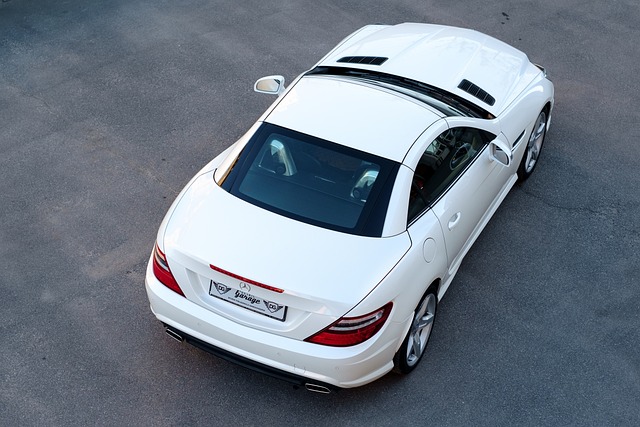Choosing the right car for you can be an exciting yet daunting task. With a multitude of options available, each boasting different features, technical specifications, and price points, it can feel like navigating a labyrinth. This blog post aims to alleviate some of that stress and confusion. We’ll delve into essential factors you should consider when buying a car, from assessing your specific needs and lifestyle and understanding the differences between various car models to consider other significant factors like fuel efficiency, safety features, and the cost of ownership. We will guide you through the car-buying journey, providing you with practical tips and insights that will help you make an informed decision.
Whether you’re a first-time buyer or a seasoned car owner looking to upgrade, this guide aims to equip you with the knowledge you need to find a vehicle that is the perfect fit for you and your unique needs. So buckle up, and let’s embark on this car-buying journey together!
Assess Your Needs and Lifestyle
When it comes to choosing the right car for you, the first step is to thoroughly assess your specific needs and lifestyle. Take the time to ask yourself a series of important questions. What will be the primary purpose of the car? Will it mainly be used for daily commutes, long-distance travel, or as a family vehicle? Consider various factors that could influence your decision-making process. For instance, think about the number of passengers you’ll need to accommodate on a regular basis. If you have a growing family, it becomes crucial to prioritize finding a spacious and safe car equipped with advanced safety features.
Additionally, take into account the type of terrain you’ll be driving on and the climate of your area. If you frequently encounter rough terrain or harsh weather conditions, you may find it necessary to explore options that include an all-wheel-drive (AWD) or four-wheel drive (4WD) system. By carefully analyzing these various elements, you’ll be better equipped to make an informed decision and find a car that perfectly aligns with your unique requirements.
Know Your Car Models
Once you have a clear understanding of your needs and lifestyle, it’s essential to research and understand the different car models available in the market. Each model boasts its own unique features, advantages, and disadvantages. For example, SUVs are known for their spaciousness, while sedans offer better fuel efficiency. Hatchbacks are great for city driving due to their compact size, while trucks are ideal for those who require a vehicle with strong towing capabilities.
To narrow down your options, consider making a list of must-have features and prioritize them according to your needs. This will help you eliminate models that don’t meet your requirements and make the decision-making process more manageable. The key is to find a balance between your needs and wants in a car, while also considering other important factors like budget and maintenance costs.
Find The Right Dealer
Finding the right car dealer is just as important as finding the right car. Do your research and read reviews to get a sense of their reputation and customer service standards. A reputable dealer will not only offer you a wide selection of cars to choose from but will also provide valuable insights and recommendations based on your needs and budget.
It is essential to select an authorized dealer depending on the brand of car you’re interested in. For instance, if you’re looking to purchase a Subaru, it’s crucial to find an authorized Subaru dealer who can provide you with genuine parts and expert maintenance services. They will also have a deeper understanding of the brand and its specific features, making them better equipped to guide you toward the perfect car for your needs.
Chose Between New or Used
Deciding between buying a new or used car is a common dilemma faced by many car buyers. While a new car may offer the latest technology and features, it comes with a higher price tag. On the other hand, a used car may be more affordable but could come with potential maintenance issues.
To make this decision, consider your budget and long-term goals. If you’re looking for a car that will last you for many years to come, investing in a new car may be the best option. However, if you’re on a tight budget and don’t mind potential wear and tear, buying a used car could save you some money. Be sure to have a mechanic inspect any used car thoroughly before making a purchase to avoid any surprises.
Consider Ownership Costs
While the upfront cost of buying a car may be your primary concern, it’s crucial to also think about the long-term costs of ownership. This includes factors like fuel efficiency, insurance premiums, and maintenance costs. Do your research and compare these expenses for different models you are considering to determine which one is most suitable for your budget.
In addition to this, consider the resale value of the car. Some models hold their value better than others, which can be advantageous if you plan on selling or trading in your car in the future. It’s also essential to factor in any potential taxes or fees associated with owning a specific type of vehicle in your area.
Look Out For Safety Features
When it comes to choosing a car, safety should always be a top priority. Look for models that offer advanced safety features such as lane departure warning, automatic emergency braking, and blind-spot monitoring. These features can not only give you peace of mind while driving but can also potentially help prevent accidents.
If you’re purchasing a used car, make sure to thoroughly inspect its safety features and ensure they are in good working condition. You can also refer to reliable sources like the Insurance Institute for Highway Safety (IIHS) for information on specific models’ safety ratings. If your car does not come equipped with certain safety features, you can also consider investing in additional safety equipment like dash cams or collision avoidance systems.
Finding the right car for you involves careful consideration of various factors, from your specific needs and lifestyle to the different car models available in the market. By taking the time to assess these elements and doing thorough research, you can make an informed decision that will suit your budget and meet your expectations. Remember to also prioritize safety features and consider long-term ownership costs before finalizing your purchase. With these tips in mind, you’ll be well on your way to finding the perfect car for you and your unique needs.










